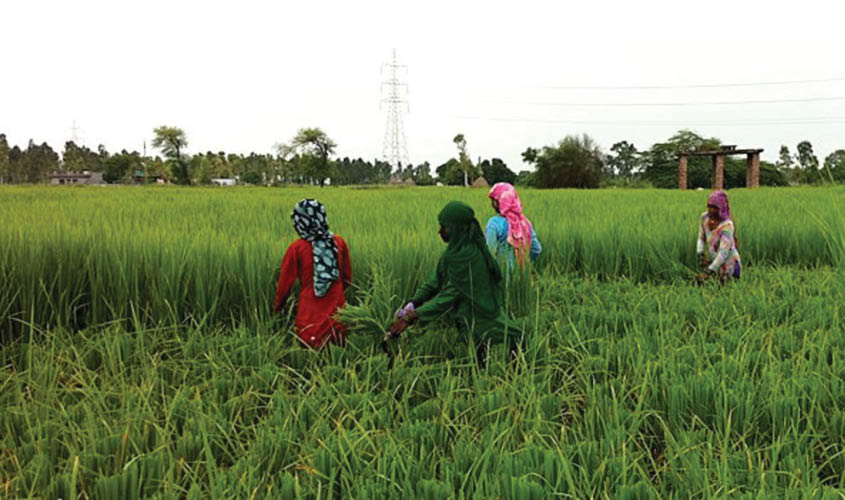The inefficacy of farm loan waivers is well-known to all, as also the need for reforms in agriculture. Report after government report has underlined the need for reforms.
Bismarck once said that while a fool learns from his own mistakes, the wise man learns from the mistakes of others. But Indian politicians don’t learn—either from their own and others’ mistakes or from the advice of experts. The spate of farm loan waivers proves this.
That rural distress is a reality nobody denies, but it is equally true that populist measures like farm loan remission have failed miserably to address the issue. Yet, politicians of all parties persist with populism. Congress president Rahul Gandhi’s pledge, that farmers in all Congress-ruled states will get farm loan waivers, only shows that the political class is learning-proof.
“We won’t let Modiji sleep or rest or sit in peace until we make him waive farmers’ loans,” Gandhi recently announced. This is the surest recipe for competitive insanity, fiscal imprudence and economic ruin. To be fair to the Congress president, he is not the author of farm loan remission in recent times; it was the Bharatiya Janata Party, in a desperate bid to win the Assembly poll in Uttar Pradesh last year, that began the waiver madness.
The BJP won UP; but such was the pervasiveness and intensity of demonetisation-generated schadenfreude in those days that it would anyway have emerged victorious. In 2008, the United Progressive Alliance had done the same thing nationwide, costing the exchequer about Rs 60,000 crore. But again there is no cause-and-effect relationship to prove that it benefited the UPA in 2009. The Congress-led UPA did better in that election than it had done in 2004, but it was more because of Manmohan Singh standing up to the Left Front and the disarray in the BJP, rather than the waiver.
Former Prime Minister V.P. Singh is notorious for birthing the Mandal demon and, thus, giving a new lease of life to caste politics. But he was also the author of another abomination—foregoing agricultural loans. At that time, it cost Rs 10,000 crore to the exchequer. To no avail: his government fell a few months later, and there was no improvement in the condition of agriculturists. The evil that men do lives after them…
By the way, the inefficacy of farm loan waivers is well known to all, as also the need for reforms in agriculture. In its report on state finances in July this year, the Reserve Bank of India had warned against waivers. Niti Aayog Vice-Chairman Rajiv Kumar recently echoed similar views: “Farm loan waiver is not a solution to farm sector distress. It is not a solution but is [a] palliative.” Actually, it is not even a palliative, for it hardly brings even any short-term substantive relief to the agriculturist.
Report after government report has underlined the need for reforms. NITI Aayog’s recently released “Strategy for New India@75” says, “In agriculture, emphasis must shift to converting farmers to ‘agripreneurs’ by further expanding e-National Agriculture Markets (e-NAMs) and replacing the Agricultural Produce Marketing Committee (APMC) Act with the Agricultural Produce and Livestock Marketing (APLM) Act. The creation of a unified national market, a freer export regime and abolition of the Essential Commodities Act are essential for boosting agricultural growth.”
Economic Survey 2013-14, the last one brought out by the UPA, also had similar recommendations: “On domestic and international marketing, the plethora of government interventions that were used to build a marketing set up have actually served as barriers to trade. Removing market distortions will create greater competition in markets, promote efficiency and growth, and facilitate the creation of a national agriculture market… Since agriculture provides the backward linkage to agro-based industries and services, it has to be viewed holistically as a seamless farm-to-fork value chain, comprising farming, wholesaling, warehousing, logistics, processing, and retailing including exports.”
The Survey suggested, among other things: a relook at the APMC Act, Land Tenancy Act, etc., that have “created structures whose provisions are restrictive and create barriers to free trade”; direct marketing; contract farming; stable trade policy based on tariff interventions instead of non-tariff trade barriers; and incentives to the private sector to scale up investments.
It also talked about the “anomalous situation” in India, with large stocks of food-grains on the one hand and high food inflation on the other—a consequence of “the government becoming the single largest buyer”.
Yet, there are demands, by politicians and farmers’ leaders, for minimum support prices or MSPs for more crops. Worse, anybody questioning the wisdom of continuing, indeed intensifying, the failed policies are dubbed as elitist, anti-farmer, and worse. Unsurprisingly, politicians don’t oppose loan waivers, MSPs, etc.; nor do they strive for the opening up of the agricultural sector.
Still worse, politicians are now vying with each other to offer more populist measures. There are reports that the Central government is planning something much big to “help” farmers. It has also been reported that between June 2017 and June 2018, there was a rise of 24% in bad debts in Madhya Pradesh’s farm sector.
Bad debts bring down farmers’ creditworthiness, which further hurts the flow in investment in agriculture, thus depressing growth in it. As it is, the sector is a laggard. Besides, remissions usually help the better-off farmers, but the squeeze of credit hurts all tillers, including the small and marginal ones.
Politicians know these facts, but they can’t tame populism; they know only to feed this beast.

